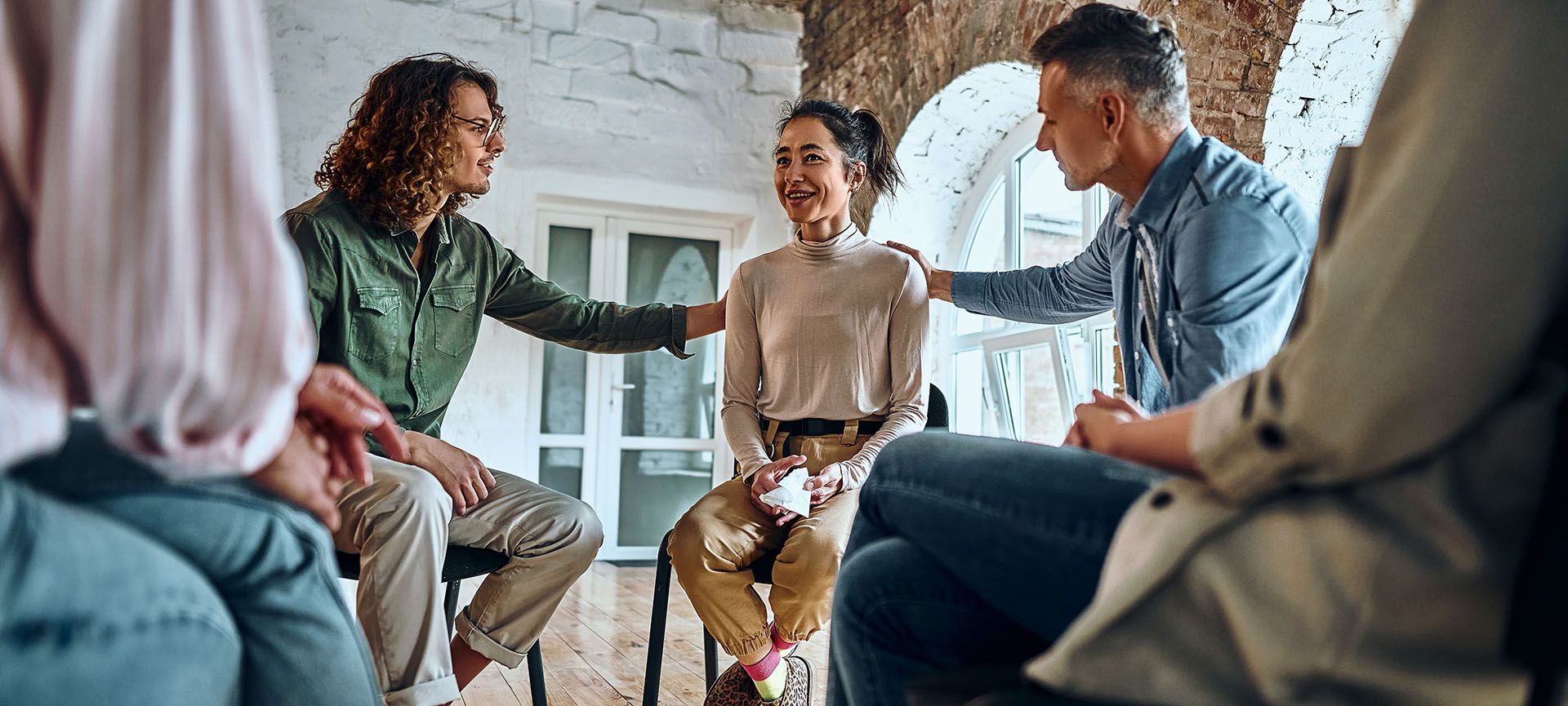
7 Tips For Helping Someone With An Addiction
Addiction does not only affect the addicted. It can have significant impacts on close friends, family members, coworkers, and peers. It is painful to someone you care about getting lost to drug or alcohol addiction, and it is usually our first instinct to try to help. This can cause emotional trauma to the loved ones of people with addictions.
Addiction can also affect other people in a more direct way. If you live with someone who is addicted to drugs or alcohol, your finances may be suffering. You may constantly be running out of basic groceries. Your bills are possibly being left unpaid. You could be fearing for your safety, and devoting all your energy to protecting any children who live with you.
If the addicted person is a friend, they may be trying to borrow money from you – or they may already owe you money. You might have sacrificed something for yourself in order to help your friend pay the bills or buy food. They may have started treating you badly and neglecting your friendship.
What makes a bad situation worse is that many people, in trying to help loved ones with addictions, inadvertently enable them instead.
What Does It Mean To Enable An Addict?
Enabling includes any behaviour that has the effect of allowing drug or alcohol abuse to continue. It includes the following:
- Giving the individual money for groceries or bills
- Calling their manager to say they’re sick
- Excusing abusive behaviour because the addicted person “cannot help it”
- Allowing an addict to live with you because you don’t want them to be homeless
- Taking on the addicted person’s responsibilities, such as childcare and household chores
- Not following through on consequences that have been communicated
We do these things out of a genuine desire to help. We don’t want our loved one to go hungry or be without shelter. But by creating a situation in which they can continue to use alcohol or drugs without sacrificing something essential, we take away their motivation to get better.
So How Can We Help People With Addictions?
There are ways to help addicted loved ones in ways that do not enable the addictive behaviour. The goal is not to make the addicted person comfortable in the life they are living; it is to steer them to a point of acknowledging their problem and agreeing to get the help they need.
#1 Take care of yourself first
When you are on an airplane, the flight attendants tell you that in the event of needing oxygen, you should put on your own mask before you help others put on theirs. This applies to helping people with addictions as well. If you are mentally exhausted, emotionally overwrought, or physically ill, you cannot expect yourself to be helpful to an addicted person. Make sure you have a support system and that you have the physical and mental energy to be a supportive resource to your loved one.
If there is an emergency situation like an overdose or a suicide threat, call for help and stay with the individual until help arrives – and then let the trained professionals take over. In non-emergency situations, don’t be afraid to take a step back to take care of yourself.
#2 Research treatment options
It is very difficult to overcome an addiction without professional help. Recovery is a complicated process that includes medical detox and rehab that includes group and individual therapy and other treatment methods. Your loved one may not be ready to accept that they need help, but when they are, presenting them with some options can make the process easier for them.
Treatment programs to consider range from inpatient rehab to intensive outpatient programs. If your loved one does not have the financial means or insurance coverage for private drug rehab in Toronto, look into the government-funded facilities in your area.
#3 Learn as much as you can about addiction
We tend to be most afraid of things we do not understand. The realization that someone you love has an addiction can be scary. But the more you learn about addiction and demystify what it is and why it happens, the less overwhelming it will be. Learning about addiction in general, and your loved one’s substance abuse in particular, can benefit both you and the person with the addiction.
The more you know about this complex condition, the more you will understand about how you can help your loved one and yourself.
#4 Consider a professional intervention
If your friend or family member is not ready to seek help or even acknowledge that there is a problem, you might benefit from a professional intervention. This is a process whereby an addiction specialist facilitates a meeting between the addicted person, you, and other loved ones. Each person is given the opportunity to talk about how the addict’s behaviour is impacting them, and what the consequences will be if they do not go for help.
There are several benefits to a professional intervention. The interventionist will ensure that everyone gets an equal opportunity to speak, that the process will stay on track, and that any conflicts that arise during the process are kept under control. In addition, the interventionist may have the ability to immediately take the addicted person to a rehab facility if they choose to get help.
#5 Participate in the recovery process
Addiction is a complicated condition that can affect every aspect of a person’s life, including their relationships with friends and family members. A good addiction treatment program will take this into account and help the addicted person through the process of mending damaged relationships. The addict and their loved ones receive support in the form of family counselling. Everyone involved can learn better communication and conflict resolution skills, and the loved ones are provided with resources to help them heal from the damage that was done to them.
#6 Help create an environment for sobriety
Once the addicted person is done with rehab, they will have to return to “real life”. During the early post-rehab days, the risk of relapse is at its highest. It can be difficult to make the transition back to home, work, and daily activities. Your addicted loved one will need all the support they can get during this time. They will have been told to avoid people and places that triggered their substance use; you can help by suggesting alternatives. If they want to go to a restaurant, suggest one that does not have a bar attached to it. If their previous social group included people they used to use substances with, support them through the process of creating a new, healthier social group. If your loved one is an alcoholic, help turn their home into an alcohol-free zone.
#7 Celebrate sobriety milestones
Sobriety is hard work, and it should be rewarded. Make note of your addicted loved one’s first day of not using, and plan celebrations for milestones like the first month, the first six months, the first year. Celebrations could include a cake – because this is a birthday of sorts – along with a sober dinner party or a picnic. You could take your loved one to a place they’ve always wanted to go. Help your loved one feel good about what they have accomplished so they are motivated to keep going until the next milestone.
Getting Help For An Addiction
If you are looking for help for a friend or family member with an addiction, call 1000 Islands Addictions Treatment Centre today. We are located in a beautiful setting just a couple of hours’ drive from Toronto – close enough for Toronto-based loved ones to visit, but far enough for the addicted person to be removed from the stresses of their regular environment. Our addiction treatment programs are tailored to each individual, because we are all different and need different things. We follow a holistic approach that treats the whole person – physically, mentally, emotionally, socially, culturally, and spiritually. Your loved one can recover and go on to lead a healthier, happier life, and your relationship with them can be mended.

